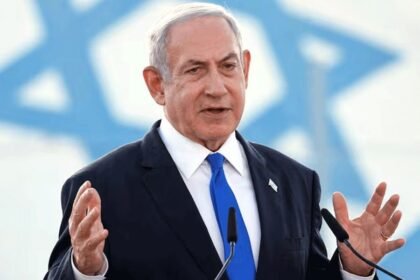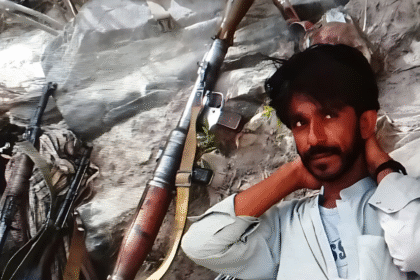Introduction
In recent developments, Pakistan has reported three new cases of wild poliovirus type 1 (WPV1), bringing the total number of polio cases to 21 in 2024. This alarming trend highlights the ongoing challenges that the country faces in its battle against this debilitating disease. The recent cases, including the first from Khyber Pakhtunkhwa this year, have prompted urgent calls for renewed efforts in vaccination and community awareness. The Prime Minister’s Focal Person for Polio Eradication, Ayesha Raza Farooq, has made a fervent appeal to parents and caregivers across the nation, emphasizing the critical importance of vaccinating children to prevent the resurgence of polio.
Current Situation in Pakistan
The Rise in Polio Cases
The confirmation of these three new polio cases is a stark reminder of the persistent threat posed by the virus in Pakistan. Despite significant progress made in the past few years toward polio eradication, the country remains one of the last bastions where the disease is still endemic. In 2023, Pakistan reported a total of 29 cases, and the trend appears to be continuing into 2024. This resurgence poses a serious threat to public health and highlights the need for immediate action.
Khyber Pakhtunkhwa: A Region of Concern
Khyber Pakhtunkhwa has consistently been a region of concern in the polio eradication campaign. The province has seen numerous challenges, including security issues, community resistance to vaccination, and misinformation regarding vaccines. The emergence of the first case in this province in 2024 underscores the urgent need to strengthen vaccination efforts and address the barriers that prevent children from being vaccinated.
The Role of Health Authorities
Health authorities, including the National Institute of Health and the Prime Minister’s Polio Monitoring and Coordination Cell, are on high alert following the new cases. The confirmation of these cases is a call to action for health officials and the government to mobilize resources and implement strategies aimed at preventing further outbreaks. This includes increased vaccination campaigns, community engagement, and heightened surveillance.
The Importance of Vaccination
Understanding Polio
Polio is a highly infectious viral disease that primarily affects children under five years of age. It can lead to irreversible paralysis and, in some cases, death. The virus spreads through contaminated food and water, as well as through direct contact with an infected person. Vaccination is the most effective way to prevent polio, as it helps to build immunity and protect communities from outbreaks.
Ayesha Raza Farooq’s Appeal
In light of the recent cases, Ayesha Raza Farooq has made a passionate appeal to parents and caregivers to ensure that their children receive the polio vaccine. She emphasizes that the vaccination is not just a personal choice but a collective responsibility to protect future generations. Her message resonates strongly in a country where vaccine hesitancy can be prevalent, fueled by misinformation and distrust of the healthcare system.
The Vaccination Campaigns
Pakistan has undertaken several vaccination campaigns in recent years, aiming to reach millions of children. These campaigns typically involve house-to-house visits by trained health workers who administer the oral polio vaccine (OPV). The government has committed significant resources to these campaigns, recognizing that achieving high vaccination coverage is crucial to eradicating polio.
Community Engagement
Community engagement is vital for the success of vaccination campaigns. Health authorities must work closely with local leaders, religious figures, and influencers to dispel myths and encourage parents to vaccinate their children. By fostering trust and transparency, health officials can increase community acceptance of the vaccine and improve overall vaccination rates.
The Challenges Ahead
Vaccine Hesitancy
One of the major challenges in eradicating polio in Pakistan is vaccine hesitancy. Misinformation about vaccines, often spread through social media and word of mouth, can deter parents from vaccinating their children. Addressing this misinformation is crucial; health authorities need to proactively engage with communities to provide accurate information about the safety and efficacy of vaccines.
Security Issues
Certain regions of Pakistan, particularly Khyber Pakhtunkhwa and parts of Balochistan, have experienced security challenges that hinder vaccination efforts. Health workers have faced threats and violence while conducting vaccination campaigns, leading to a reluctance to participate in these initiatives. To combat this, the government must enhance the safety of health workers and provide them with the necessary support to carry out their duties.
Logistical Challenges
The logistical challenges associated with conducting vaccination campaigns in remote and rural areas cannot be overlooked. Many children live in hard-to-reach areas where healthcare facilities are sparse. Ensuring that vaccines are stored and transported correctly, as well as having enough trained health workers on the ground, is essential for the success of these campaigns.
The Path Forward
Strengthening Surveillance
In addition to vaccination efforts, strengthening surveillance systems is critical for detecting and responding to polio outbreaks. Early detection can help health officials implement rapid response measures to contain the virus. Surveillance involves monitoring health data, investigating reported cases, and ensuring that health workers are equipped to respond effectively.
Increased Awareness and Education
Raising awareness about the importance of vaccination is key to overcoming vaccine hesitancy. Educational campaigns should be launched to inform parents about the risks associated with polio and the benefits of vaccination. This includes collaborating with local media, schools, and community organizations to disseminate accurate information.
Global Cooperation
The fight against polio is not just a national issue but a global one. Pakistan must continue to collaborate with international organizations such as the World Health Organization (WHO) and UNICEF. Sharing best practices, resources, and data with these organizations can enhance the effectiveness of vaccination campaigns and help improve public health outcomes.
Conclusion
The recent confirmation of three new polio cases in Pakistan serves as a wake-up call for the nation. It underscores the urgency of revitalizing efforts to eradicate this preventable disease and protect the health of future generations. As Ayesha Raza Farooq has articulated, vaccination is a collective responsibility that requires the engagement and cooperation of parents, communities, and health authorities. By addressing the challenges of vaccine hesitancy, security concerns, and logistical barriers, Pakistan can work towards a polio-free future.
Call to Action
In light of the current situation, it is imperative for all stakeholders to take immediate action. Parents must prioritize vaccination for their children, health authorities need to intensify vaccination campaigns, and communities must come together to support these efforts. Only through a collective and sustained effort can Pakistan hope to eradicate polio and secure a healthier future for its children.
#PolioEradication #PakistanHealth #VaccinationAwareness #ProtectOurChildren #EndPolio #PublicHealth #CommunityEngagement #HealthAwareness







